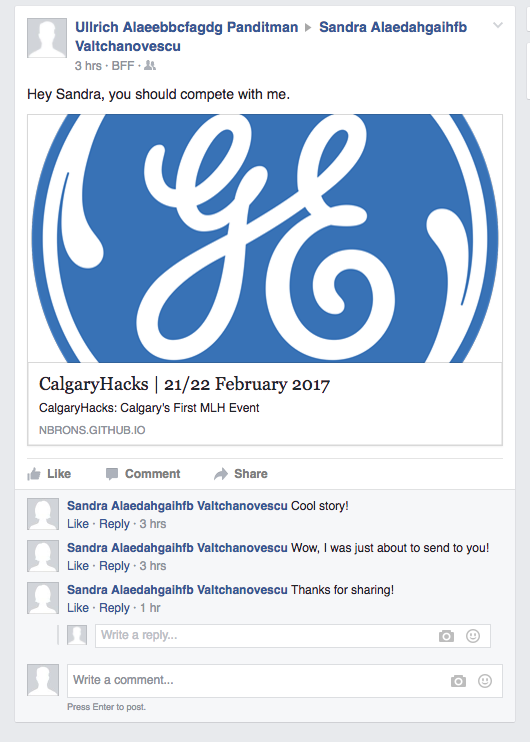Better Friend automatically responds to activity on your Facebook feed, for both users and organizations. It provides a way to feign interest in your friends' inane memes and your customers' complaints. It won first place at CalgaryHacks 2017 hackathon where the theme was Automation and Optimization.
This is the ReactJS web app used to allows users to register their Facebook accounts with Better Friend and configure their automatic replies and other settings.
To connect with Facebook Login and Graph API to manage users' Facebook accounts, we made a separate API with Node.js.
Landing page
Sandra automatically replying to Ullrich's Facebook wall posts.
We found it difficult to keep up with all of the activity on social media. It would save us a lot of time if we could automate our interactions with friends and fans. That's why we made Better Friend.
We built the back-end with Node.js and stored our data in a MongoDB instance. The front-end uses React.js. Our web server and API server are hosted using Heroku.
We make use of the Facebook Graph and Facebook Login APIs to respond on a user's behalf. Whenever new activity on a user's feed is detected, a webhook is triggered and calls our API server, which uses the Facebook Graph API to make an appropriate reply based on industry standards.
We had a lot of trouble dealing with the limitations of the Facebook APIs and the large learning curve of React. As well, there were restrictions that prevented us from allowing public Facebook accounts to work with the app. We would have needed to submit a request to Facebook to allow us to ask users for specific permissions that would allow us to post on their behalf.
Because we do not have authorization from Facebook to enable certain permissions needed to post on behalf of users, this currently only works with our Facebook Test User accounts.

